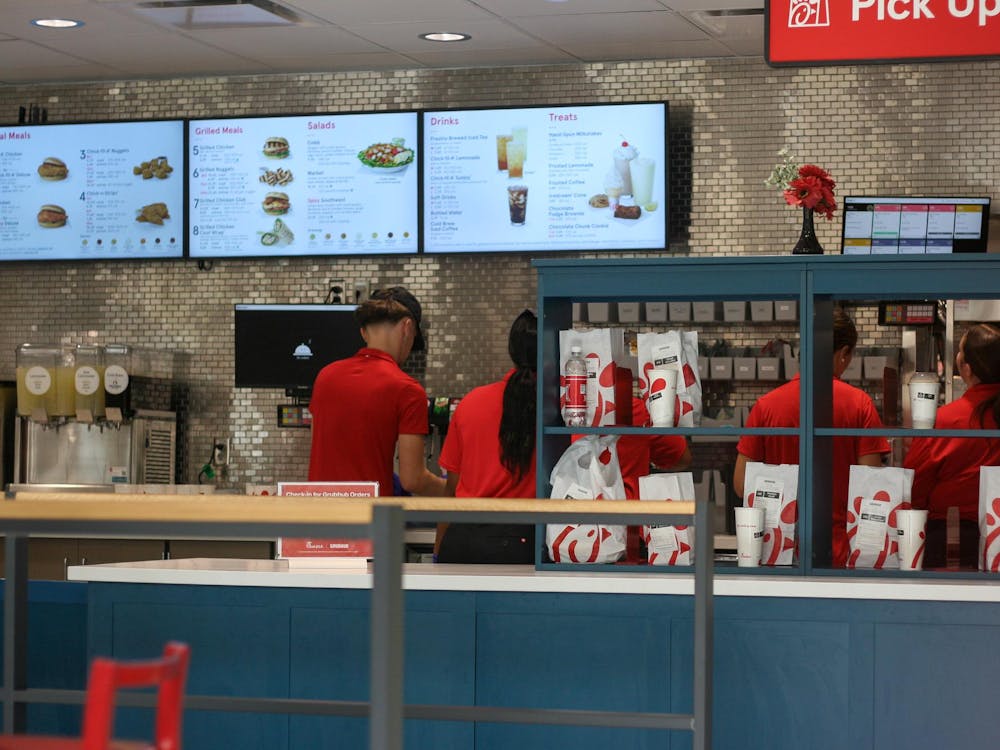As climate change continues to pose an existential threat to our planet, Gen Z is emerging as the “sustainability generation.” A Deloitte survey from 2024 found that 62% of Gen Zs reported feeling anxious about climate change.
Whether you're a first-year student adjusting to college life or a returning student eager to expand your horizons, there are many ways to contribute to sustainability efforts at Miami University.
By following the tips below, you can reduce your carbon footprint and inspire collective action among students.
Join green organizations
Miami is home to many sustainable organizations, each playing a role in promoting eco-friendly practices on and off campus. These organizations are great for learning about green practices and meeting like-minded people.
Groups such as EcoReps, Zero Waste Oxford and Green Team offer numerous opportunities for students to get involved with sustainability efforts on campus. You can participate in litter pickups, trash audits and community educational events. These organizations also give students a platform to advocate for sustainable changes at Miami with their club as the platform.
You can find all these organizations and more on the HUB, Miami’s student organization directory.
Shop sustainably
With the latest fashion trends sweeping college campuses across the country, many students on a budget may feel peer pressure to buy into harmful trends that use fast fashion. Retailers such as H&M, Zara and Forever 21 make it easy to find cheap clothes, but at a significant environmental cost.
According to the UN Environment Programme, the fast fashion industry is responsible for around 10% of global emissions. Therefore, choosing sustainable clothing options can reduce your carbon footprint.
Luckily, Oxford offers many ways for students to ditch fast fashion while still finding stylish clothes. Goodwill and Zero Waste Oxford’s pop-up thrift store are great places to discover affordable second-hand clothes.
Additionally, Oxford also has an abundance of fresh local produce. The Oxford Farmers Market, held from 9 a.m. to noon every Saturday, features nearly 20 vendors offering local produce and baked goods. Moon Co-op, located next to Dollar Tree, is another sustainable grocery store in Oxford with fresh local produce.
Enjoy what you're reading?
Signup for our newsletter
Despite the financial constraints of many college students, shopping at the Farmer’s Market or Moon Co-Op is a great way to support local farmers and promote eco-responsibility.
Reduce, reuse, recycle
While this might seem obvious, it’s surprising how many people forget about this one.
Miami provides recycling bins in every dorm room, posters in the trash rooms explaining recycling procedures and even AI trash sorting systems in the Armstrong Student Center. However, recycling remains a challenge on campus.
According to EcoReps’ biannual trash audit data, which calculates the percentage of recyclable items found in the trash at dorms, contamination numbers reached up to 25% in certain dorms over the 2023-24 academic year. Improper disposal of food waste has seen numbers as high as 27%.
Additionally, food waste is of growing concern at dining halls around campus. At Miami, organizations such as the Food Recovery Network help educate students on reducing food waste in dining halls and provide ways to do so.
Although breaking bad habits can be tough, Miami’s community has made recycling and waste reduction significantly easier for students.
Attend sustainability events
Oxford is working to be known for its commitment to the environment. The city’s Climate Action Plan aims to achieve carbon neutrality by 2045 and promote more sustainable initiatives in the community.
Similarly, Miami has its own Climate Action Plan, which aims to achieve carbon neutrality by 2040 through commitments to renewable geothermal energy and carbon offsets for student transportation and university-sponsored air travel.
These commitments mean sustainability-oriented events are common around campus and town.
From the 2023-24 Altman Series lectures on environmental justice to lighthearted events like the annual EarthFest, there are plenty of opportunities to learn more about sustainability in the community. For those seeking a more active role, volunteer opportunities such as Honeysuckle Hacks allow students and community members to get involved and remove invasive species from conservation areas.
By following these tips, you should be well-equipped to become a more sustainable Miami student and a better community member.




